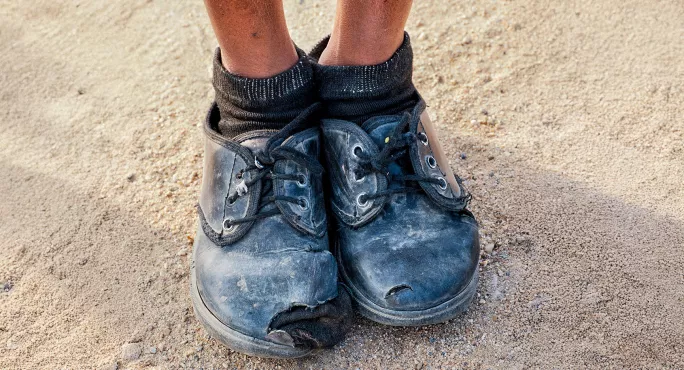The impact of almost a decade of the Pupil Equity Fund (PEF) on Scottish schools will be revealed by detailed analysis in the spring, education secretary Jenny Gilruth revealed this afternoon.
She told MSPs about the imminent publication of nationwide evidence during a debate on child poverty and education today, following recent comments in which she suggested that the could not continue in their current form after the 2026 parliamentary election.
Today, she stressed that there was still an important role for PEF funding post-2026 - but with an emphasis on directing money ŌĆØwhere it is needed mostŌĆØ.
Gather evidence of PEF impact
She told MSPs: ŌĆ£IŌĆÖve been working closely with schools in every local authority in recent months across the country to gather evidence of the impact of PEF as we reflect on this 10-year programme of investment, and we will be sharing this learning in the spring.ŌĆØ
PEF stemmed from former first minister Nicola SturgeonŌĆÖs landmark speech in August 2015, when she said that her top priority was to eliminate attainment gaps between rich and poor. The started in 2016 as a way of providing schools with extra money to find innovative ways of reducing the ŌĆ£poverty-related attainment gapŌĆØ.
Almost all Scottish schools subsequently received varying levels of annual PEF allocations, depending on the number of pupils registered for free school meals.
Many schoolsŌĆÖ PEF projects have won praise - and Ms Gilruth highlighted some today - but critics say PEF has been too piecemeal and that it is hard to gauge the overall impact.
There has also been criticism - including from Ms Gilruth - that rather than driving innovation, too often PEF has been used to plug funding gaps and shore up existing services that might be lost otherwise.
Today, she said ŌĆ£it is my strongly held view that PEF should remain as a catalyst for improvement where it is needed most beyond this parliamentary sessionŌĆØ.
However, the education secretary has repeatedly voiced concerns about the changing use of PEF money.
In November, Ms Gilruth told the School Leaders Scotland (SLS) annual conference in Aberdeen: ŌĆ£WhatŌĆÖs happened over the course of a number of years is that budgets have been eroded, and SAC and PEF filled that gap.ŌĆØ
She also told SLS that both were due to ŌĆ£come to an endŌĆØ in 2026 and that, looking at the set-up around budgets and support for schools, ŌĆ£I donŌĆÖt think the status quo is sustainableŌĆØ and ŌĆ£we need to look fundamentally at how we fund our schoolsŌĆØ.
Today, the schools she praised for their use of PEF included Woodburn Primary in Dalkeith, Midlothian, for ŌĆ£helping families to apply for benefits, including travel cardsŌĆØ and Braes High in Falkirk, for its ŌĆ£cost-of-the-school-day pupil group, who are doing some really innovative work on reducing or removing costs associated with the school dayŌĆØ.
Ms Gilruth also highlighted Fair Isle Primary in Kirkcaldy, Fife, for its success in using its PEF allocations to improve literacy, numeracy and health and wellbeing.
ŌĆśVery concerningŌĆÖ numbers of homeless children
Meanwhile, figures showing a record high number of homeless young people living in temporary accommodation were described today as ŌĆ£very concerningŌĆØ by first minister John Swinney.
As well as the 17,424 households assessed as being either homeless or threatened with homelessness in the six-month period from 1 April to 30 September 2024, Scottish government data showed that as of 30 September, there were 16,634 households living in temporary accommodation, including 10,360 children.
Both totals are the highest since current records began in 2002, with housing minister Paul McLennan accepting the figures are ŌĆ£far too highŌĆØ.
Mr Swinney, who has made eradicating child poverty his top priority, told journalists: ŌĆ£The housing data this morning is very concerning to me.
ŌĆ£It is essential that we do all that we can to reduce the levels of temporary accommodation and to improve the housing conditions of people in Scotland, particularly children who are living in temporary accommodation.ŌĆØ
For the latest in Scottish education delivered directly to your inbox, sign up for TesŌĆÖ The Week in Scotland newsletter





